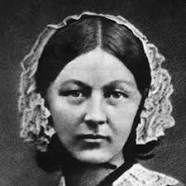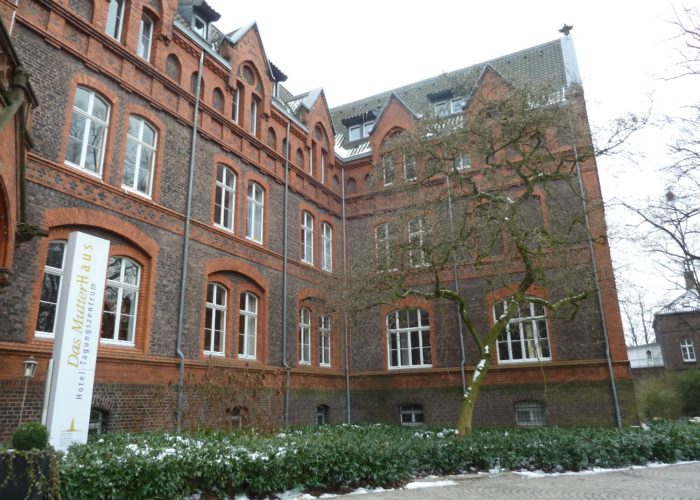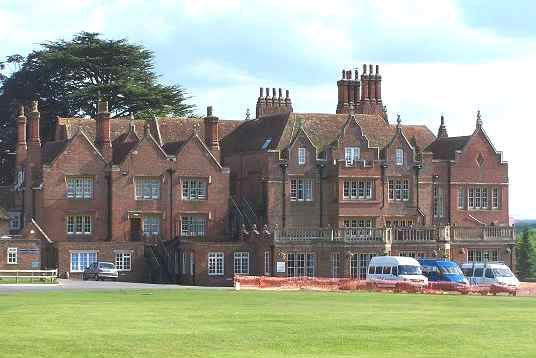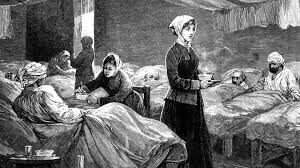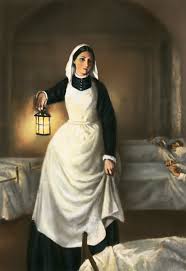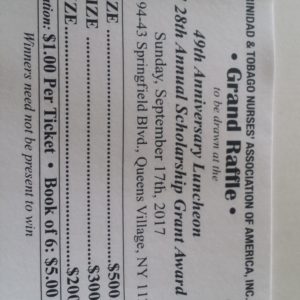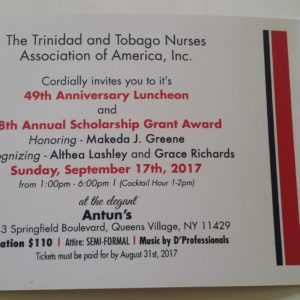Florence Nightingale Pioneer of Nursing Medical Standards
Florence Nightingale’s Early Years
Florence Nightingale is the pioneer of Nursing, in 1852 Florence as a nurse implemented a basic hygiene plan in the hospital. After an outbreak of Cholera spread rapidly throughout the hospital.”
Florence implementation of a higher Medical standard of operation and treatment within the hospital, significantly reduced the spread of the illness and lowered the rate of death in London.
Florence Nightingale, daughter of William and Fanny Nightingale was born in Florence Italy in 1820. The younger of 2 daughters. The circumstances and reason is not stated why her father changed his surname from “Schula” to Nightingale.
William Edward Nightingale was also a very rich Banker. Before 1818 Mr. Nightingale had acquired two properties, one Estate at Les Hurst, Derbyshire and the other at Embly, Hampshire in England.
In 1818 he married Francis who came from a prominent family of merchants and was an active socialite in the City.
The Nightingale’s had 2 children, the second daughter Florence was born while on a Banking assignment in Florence Italy, hence naming her after the City of her birth.
Unlike her Mom, Florence avoided being the center of attention. Instead she preferred ministered to the ill and the poor in the neighboring areas of the family’s estate.
Florence was given a classical education, with studies in mathematics, German, French and Italian.
Florence was greatly influenced by her father’s love for Mathematics, he was able to communicate to her the relevance and value of Mathematics as it pertains to life.
Her mother assumed as a young woman she would be interested in preparing for marriage following the normal tradition of the Quadrille dance, which was practiced by young women in social preparation for an eligible suitors in marriage.
In the Victorian era, women were denied the privilege to own properties therefore, marriage became a means of financial stability for women.
Instead in 1840 at age 20, Florence pleaded with her parents to allow her to study Mathematics, her Mother strongly opposed as she couldn’t see the value of mathematics for a woman of Society status. Being persistent, “Florence expressed her preference for mathematics over practicing the Quadrille dance by saying, “I don’t think I shall succeed so well in anything that requires quickness as in what requires only work.”
Finally her parents granted permission for her to study mathematics, still she had to contend with a long emotional battles before they would permit her to have a Math tutor, one of them being J.J. Sylvester.
Florence studied and excel in Arithmetic, Geometry and Algebra. Soon she began teaching the subject of math to young women. Florence was very disturbed that young women were denied the opportunity to study Mathematics, this privilege as granted only to elite men of the Courts or men from wealthy families.
Women were considered social butterfly, expected to pursue and excel in social settings expecting to find the most eligible suitor for marriage.
Understanding Society’s view point about Mathematics for women; after enduring a lengthy relentless battle with her parents especially her Mother. Florence realized that the traditional introductory study course of mathematics which Mr. Sylvester used with her, would not be suitable for her students; especially with the opposing forces which would try to undermine the growth of her student’s success.
Florence created her own math equations and study program, she personalized the equations filling it with intrigue of the student’s life, environment, distance, time travelling to and from home and to local venues in the area.
As her father had awaken an appreciation for Mathematics, showing its relevance in life; she too was able to communicate the same appreciation and understanding of math to her female students. Opening the gates of possibilities for women to study mathematics.
Florence also encouraged her fellow Teachers, to plan their class curriculum ahead of time and also to personalize the equations to the student’s lifestyle.
Marriage versus a Medical Career in Nursing
Florence interest in math extended beyond the subject matter of Mathematics. A love letter to her boyfriend (suitor) in May 1846 she wrote, “There is a most lovely character given of D’Alembert’s the great mathematician’s lightheartedness..It says that it is the exclusive privilege of the exact science, to enjoy every day some new truth which comes to reward one’s work.”
Her August letter showed that Florence heart was captured by her sweetheart Richard, as she found it easy to relate to him on Social matters with a great sense of humor, romantically as a couple and mathematically all in the same breath.
In September after attending a political speech, Florence wrote: “I have invented a new system of Logarithms (finding the capacities of arithmetic not sufficiently extensive) to count the number of times ‘Imperial Majesty’ occurs in the speech….”
Richard Monckton Milnes, proposed marriage to Florence Nightingale:
After a long courtship in 1849, Richard Monckton Milne’s marriage proposal was refused. Florence is quoted as saying,” He stimulated her intellectually and romantically, her moral… active nature called for something beyond a domestic life.”
Nursing Training School
In 1850 at age 30 Florence enrolled as a nursing student at The Intuition of Protestant Deaconesses in Kaiserwerth, Germany.
Return Home:
In 1852 Florence returned home to London, she accepted a position at the Harley Street Hospital for ailing Governesses, her employers were extremely impresses with her performance that they promoted her to Superintendent of the facility.
Florence also volunteered at a Middlesex Hospital.
An outbreak of Cholera combined with unsanitary conditions made the disease spread rapidly. This became Florence first medical mission to improve and bring awareness to the importance of good hygiene practice. In so doing she significantly lowered the death rate at the hospital.
Crimean War
In 1853… British and French forces were at war against Russia for control of the Ottoman territory. Thousands of British soldiers were sent to the Black Sea.
1854 about 18,000 soldiers were admitted to Scutari the British Military Hospital Base in Constantinople, short staff and ill prepared the base soon ran out of medical supplies. Soldiers began dying at an alarming rate out of neglect and lack of medical care.
After the battle of Alma, England was in uproar to learn of the horrible conditions their soldiers endured.
Secretary of War Sidney Herbert commissioned Florence to organize a Core of nurses to tend to the fallen soldiers at Scutari Military Base and she was promised full control over the operation. Florence quickly assembled a group of 30 plus nurses from various Religious Orders and immediately sailed to Crimea.
Arrival at Crimea
They were informed of the horrific conditions at the base, still it did not prepare them for the horrendous findings. The Hospital sat on top of a large cesspool, which contaminated the structure of the Hospital building and the water supply. The condition became a breathing ground for rodents, bugs and the likes of such insects at the hospital.
Patients laid in their own excrement on stretchers throughout the hallways.
Basic Medical supplies of bandages and soap were increasingly scares as the number of wounded soldiers increased.
Soon clean water had to be rationed.
More soldiers were dying from infectious diseases of Typhoid and Cholera than from actual battle wounds.
Action Plan
Florence first secured hundreds of scrubbing brushes and asked the least sick soldiers to assist her and her nurses to scrub the hospital from floor to ceiling.
It’s said Florence spent every waking minute caring for the soldiers, late evenings she would walk the hallways with a lamp tending to each of them. The soldiers were moved by the care comfort and compassion they received from her. Affectionately she was called by some, “The lady with the lamp, others called her The Angel of the Crimea. ”Florence basic hygiene reduced the hospital mortality rate by two- thirds.
In addition to improving the sanitary conditions of the hospital, Florence instituted:
- An Invalid’s kitchen…appealing meals were prepared with special dietary requirements.
- A laundry was established for clean linens.
- A classroom and a library for intellectual stimulation and entertainment.
Florence stayed at Scutari for a year and a half, until the Crimean conflict was resolved.
Return Home from the War
Summer of 1856 Florence returned to her childhood home at Lea Hurst.
She was greeted with a hero’s Welcome.
The next year Queen Victoria presented Florence with an engraved brooch, known as the “Nightingale Jewel” and a prize of $250,000 from the British Government.
Several accounts states that Florence and “a team of Nurses improved the unsanitary conditions at a British based hospital, reducing the death rate by 2/3. Her writing sparked world- wide health Care Reforms during the war.”
Her diligent patient care and recommendations for reform saved lives, the documented report put Florence in charge of Nursing British and allied soldiers in Turkey during the Crimean War.
Nightingale helped to promote what was then a Revolutionary Religious idea, “that social phenomena could be objectively measured and subjected to mathematical analysis.” ******
Due to Florence impressive work with Medical Statistics she was elected to membership in the Statistical Society of England in 1858.
As a pioneers in the Graphic Method of Presentation of Data, Florence invented colorful polar-area diagrams to dramatize medical data. [7] Although other methods of persuasion had previously failed, Florence statistical approach convinced Military Authorities, Parliament, and Queen Victoria to carry out her proposed hospital reforms.
Medical Consultant
- During the American Civil War, Nightingale was a consultant on Army Health to the United States Government.
- Florence also responded to a British war office request for advice on Army Medical Care in Canada.
- Her mathematical activities included ascertaining “the average speed of transport by sledge” and calculating “the time required to transport the sick over the immense distances of Canada.”
- Historians states that Florence fundamentally changed the role of Nursing in hospitals and was a key figure in introducing new Professional Training Standards.
- In 1883 Florence Nightingale was awarded the Royal Red Cross by Queen Victoria
- In 1904 she was appointed a Lady of Grace of the Order of St. John LGStJ
- In 1907 Florence became the first woman to be awarded the Order of Metit
It is stated that Florence contracted —–during the Crimea war. An illness which reduced her mobility. However, it did not hinder her performance in providing Hospital reforms. After a Cholera outbreak in India, the Indian Government commissioned Florence for advice on the matter. Without visiting the area, from her home she reviewing the medical statistics of the conditions and gave fundamental recommendations to resolve the matter.
Unfortunately, after returning home from the Crimea war, she sent most of her life home bound or bed ridden where she actively continued working on updates in hospital medical reforms.
May 12, 19 Florence Nightingale died peacefully at her home in Lea Hurst England.
In conclusion:
Historians describe Florence Nightingale foremost as a woman of faith, as a young woman when it was not common for women to own property as it is today or to be privilege to have an education; especially to be able to study mathematics, Florence tenacity and persistence made it possible for young women of her day to have the privilege to study mathematics.
Today we see women blazing the trail and yes we must commend them for stepping out and stepping above the crowd. Think for a second, how much inner strength, inner courage and inner certainty it must have taken Florence, someone who was considered reserved, someone who shun the spotlight; to step out in authority to pursue her inner desire, even when she was the only one voicing such desires?
I was certainly impressed by her understanding and application for math in her daily life, especially the ease at which she incorporated it into easy equations for her students, or in a presentation about the frequent observations and statistics of the soldiers.
As a true mathematician, her love for reasoning, always questioning assumptions and taking great care in the process of reaching conclusions. Such an analytic mind with a background in Mathematics was the foundation she used to elevate the Nursing Profession and to be instrumental to the Government of England, United States, Canada and India in various issues of health reforms.
Today in the British Museum, Florence hand written math equations with personalize stories about her students are available for our edification.
Of the many good things I desire to come from this blog:
“I would like to see many young girls become more comfortable and stronger in mathematics, I would like to see more math clubs for young children. Math is such a stepping stone into many unique and demanding careers. Parents at an early age; I charge you to emulate Florence and incorporate math into your child’s life, whether it a boy or girl’s, but especially for girls. Make the equations fun and relevant as Florence did, sparking interest relevant to their needs.
On her return home from the Crimean war, many young women desired to emulate Florence, many followed in her footsteps and began careers in nursing, from the aristocrat to the simple; overnight the Nursing profession grew tremendously.
Florence was considered shy, but was she truly shy? I say no. The calling she believed was upon her life, she did not take it for granted, where ever she saw depraved conditions, she was not afraid neither was she shy about speaking out against the indifference; to change the outcome for the betterment of all.
Florence simply believed that every woman should have the right to be whatever she desires to the Glory of God’s world…to do the thing that’s good.
She cautioned against extremism, “which urges women to do all that men do…merely because men do it, and without regard to whether this is the best that women can do.”
Thankfully today 116 years after her death the freedom and the privilege Florence fought for in so many ways has being achieved. Hospitals worldwide has accept Florence basic foundation for hygiene and hospital care as part of the main practice of the hospital.
Dedicating this first blog post to Florence Nightingale is a remarkable way to honor my mother Grace Richards her Nursing Colleagues and the Trinidad and Tobago Nursing Association in their professional Career as RN’s, a career supported and hailed by all. A career which Florence had to content with to get started.
I hope this blog Grace Medical Profession serves as an inspiration to all readers, especially those who are contemplating or pursuing a career in the medical field. Remember that Florence Nightingale is one of the standard bearers in Medicine Profession, I urge you to forge on ahead and blaze the trail of Ms. Florence Nightingale.
Sincerely,

Donna Richards author of the blog Grace Medical Profession
https://www.biography.com/people/florence-nightingale-9423539
https://www.biography.com/people/florence-nightingale-9423539

